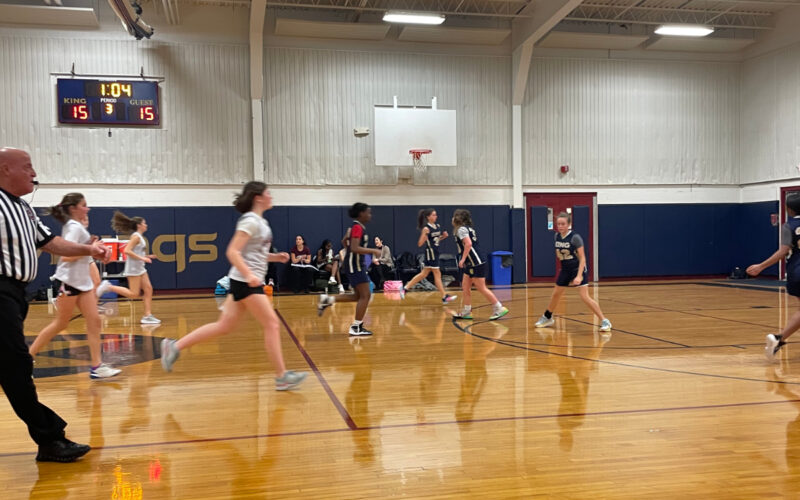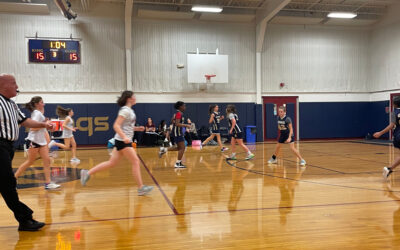I take any opportunity to be present for my daughters – walking and talking, sitting and playing, and yes, going to their athletic events.
This week I had a particularly emotional reaction to taking a break from work and sitting in the bleachers for one girl’s middle school basketball game. It surprised me.
I have conflicting feelings around what I call “event parenting”. Regardless of how bad a company’s family policies are, you can generally get a pass to attend an event for your child. I want to help companies move toward a policy that allows “everyday parenting” to be possible for working dads and moms – something that’s built more on negotiation, conversation and trust, so it works for both parents and their employers.
For kids, of course, being there for events matters. I know this first-hand. Like many children of the 1980s, my parents often couldn’t be there. My mom was a hospital nurse tied to a shift, and my dad sold used cars at auctions often far from our home. I don’t remember them at any games, though I’m sure they made it to a few. Not surprisingly, I structure my workday around being at as many things for my girls as possible.
My daughter didn’t want me to go to this game. Not out of embarrassment of her dad, but out of pragmatism, which is one of her defining qualities. She doesn’t like basketball, her team isn’t very good, and she knows I’m busy.
There was no way I was going to miss it. The last game she scored her first-ever basket, and I was there to see her beaming.
This game was tougher. The team, her school’s rival, was good. They played hard. But she scored again! She got some rebounds. She ran hard. She didn’t smile much, but every so often I could tell she was going through her mental checklist – raise her arms, move to an open spot, box out! She was still timid, but she was trying.
At one point, I covered my eyes. Not because of a bad play. There were many of those, and they made me smile. I shielded my eyes because I was tearing up.
I remembered stinking at basketball for one season and how hard it was to be in a game when I was the only one who didn’t know what was going on. I’d look up and see other people’s parents and feel even more alone. How hard she was trying – even though she’d inherited my lousy basketball ability – struck a cord.
Afterwards, she was bursting to tell me a recap of the game. In the car, when she was done, I told her I was so proud of her effort, even though I knew she didn’t love playing basketball.
“I mean, I don’t like it,” she told me. “But you can’t go halfway. You’ve got to try hard. And I don’t want to embarrass myself even worse out there.”
Hearing that, I went home and happily worked late into the night to get everything done.









